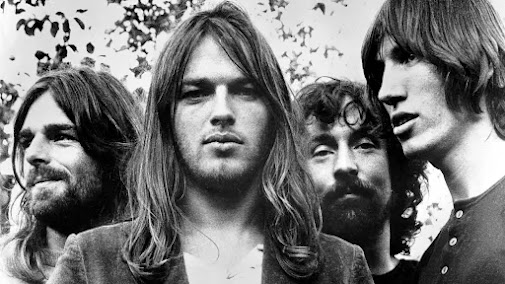Somewhere between Ibiza and a brand deal with a mineral water company, Tiësto—global trance messiah turned tropical-house uncle—decided to make a song for the people. Not just any people. The people of Puerto Rico. The result? “Una Velita.” Which translates to “a little candle,” and no, that is not a euphemism. It’s a heartfelt tribute to resilience, remembrance, and—let’s be honest—one hell of a streaming demographic.
You see, EDM isn’t known for subtlety. It’s the musical equivalent of an energy drink mixed with glitter and a Red Bull-fueled fist pump. But Tiësto? He tried something else: sincerity. And wouldn’t you know it? It works like a charm—if that charm has 128 BPM and a reggaeton backbeat.
Somewhere Between Beach Party and Church Vigil
Let’s start with the obvious: the beat slaps. “Una Velita” is a tropical-house anthem dressed up in local color and warm synths, perfectly engineered for swaying on the beach with a cocktail while pretending you understand Spanish. It’s soaked in sun, soul, and a touch of reverb-heavy introspection.
Tiësto overlays classic Latin percussive textures—bongos, congas, maybe a stray güiro—over a four-on-the-floor beat so friendly it might hug you. Add in soft, swelling strings and a rhythm that seems to nod at both mourning and celebration. The result? The soundtrack for a culturally aware destination wedding where everyone cries during the father-daughter dance.
A Dutch DJ, A Boricua Icon, and a Whole Lot of Intentions
The headliner is Tiësto, of course—real name Tijs Michiel Verwest, because nothing screams “Caribbean authenticity” like a guy from the Netherlands. But the real flavor comes courtesy of Bad Bunny—the reggaeton prince of pain and party, delivering vocals that ache even when Auto-Tuned into celestial perfection.
The uncredited heroes? Probably a studio full of brilliant Puerto Rican session musicians and engineers, unpaid interns, and one marketing executive who whispered “heritage content” during a pitch meeting.
Proceeds go to the Instituto de Cultura Puertorriqueña, so at least your Spotify stream isn’t just making rich people richer. It’s also paying for someone’s drum circle.
Hurricane Maria, Cultural Memory, and EDM’s Guilty Conscience
This isn’t just a track, it’s a gesture. A digital bouquet. A neon candle in the window of a house with no roof. “Una Velita” traces its roots to Hurricane Maria, the 2017 disaster that leveled Puerto Rico and left the rest of the world briefly Googling what a Jones Act was.
Seven years later, Tiësto drops this track, and suddenly the glow sticks have meaning. It’s more than a banger—it’s a balm. Which is ironic, because EDM is usually more about making you forget than making you remember.
But here we are. Memory in 4/4 time.
Less Lyrical, More Liturgical
Tiësto’s remix doesn’t lean on full verses or narrative lyrics—instead, it pulls slivers and sentiments from Bad Bunny’s original “Una Velita.” What survives in the remix are vocal fragments—melancholy refrains, emotive murmurs, the kind of lines that drift into your brain without knocking.
These aren’t verses you memorize. They’re lines you feel. A few words about lighting a candle. A mention of someone’s absence. A sense that this beat is carrying grief on its back.
The lyrics, in both versions, orbit themes of loss, spiritual connection, and quiet devotion. Tiësto doesn’t erase those ideas—he distills them. The remix keeps their emotional contour intact while removing the explanatory scaffolding. The result? A song that doesn’t tell you what to feel—but dares you to feel something anyway.
Mourning, Marketing, and the Beat Goes On
“Una Velita” is many things: a charity single, a cultural tribute, a brand pivot, and—somewhere under the layers of production—a sincere attempt at mourning made danceable.
It’s Tiësto doing penance for years of playing Vegas pool parties while the rest of the world burned. It’s Bad Bunny slipping in a lament between tour stops and fashion shoots. It’s Spotify’s algorithm getting misty-eyed while trying to sell you sunscreen.
But more than that? It’s proof that even the most commercialized genre in the world still has room for light, loss, and community. In three and a half minutes, it becomes less about the DJ and more about the people dancing in the dark.
A Candle in a Genre Full of Strobes
Will “Una Velita” change the world? No. But it might change someone’s day. Maybe a Puerto Rican grandmother hears it on the radio and cries. Maybe a college kid plays it at a vigil. Maybe a kid with no power remembers lighting candles after the storm—and suddenly feels seen.
That’s the legacy: a tiny song that punches way above its paygrade.
And for EDM, a genre where “meaning” is usually measured in decibels, that’s a minor miracle.
Turntable, Meet Tenderness
So here we are: a Dutch DJ, a Puerto Rican icon, a song about candles, and a dance floor full of ghosts. “Una Velita” isn’t perfect. It’s not even Tiësto’s best work. But it’s his most human, and that’s worth more than another remix.
Because sometimes, the smallest light—one little velita—is enough to find your way home.
#UnaVelita #Tiesto #BadBunny #EDMRemix #LatinHouse #PuertoRicoMusic #CulturalTribute #DanceWithPurpose #NewMusicAlert #TropicalHouse #MusicForChange #PuertoRicanHeritage #EDMCommunity #NowPlaying #StreamingNow









